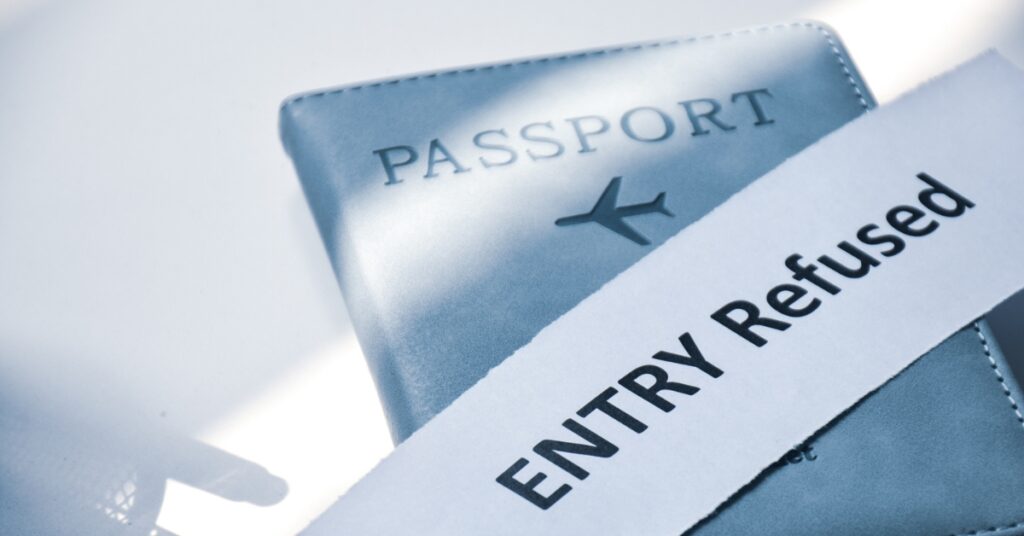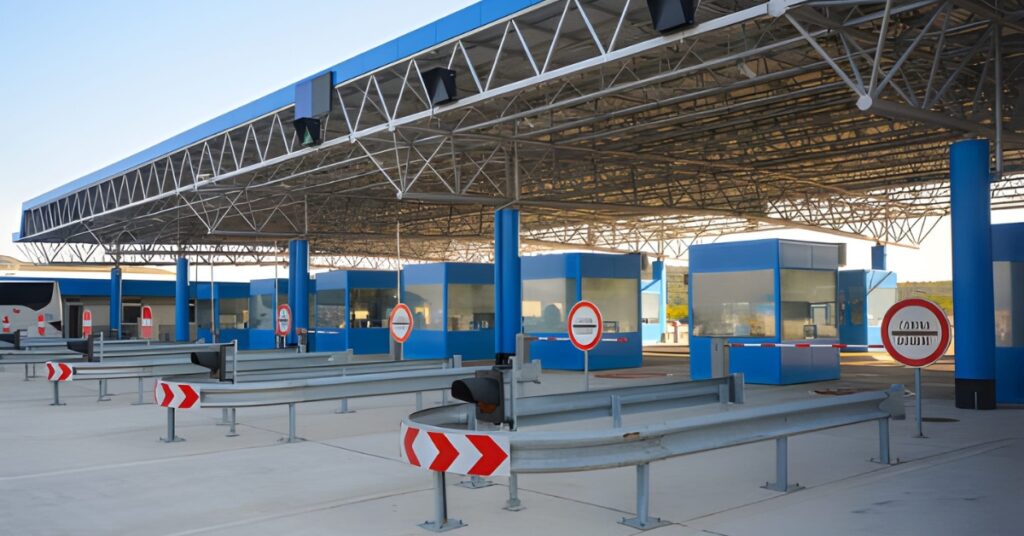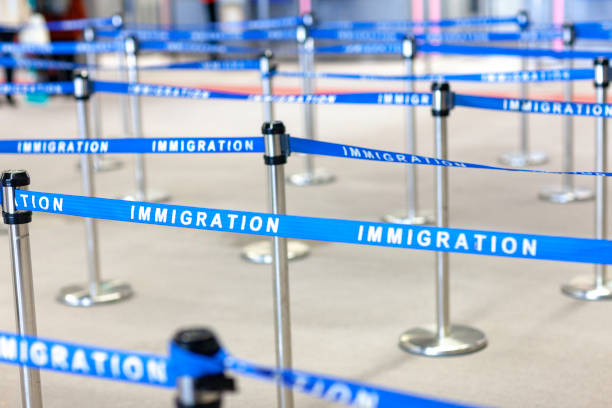
The European Union (EU) approved stricter rules that make it easier to suspend visa-free travel for non-EU countries. This decision comes as migration and security concerns rise across the bloc.
Expanded powers for rapid suspension
The Council of the European Union formally adopted the new regulation on November 17, revising the existing visa suspension mechanism to make it faster and more flexible.
The changes apply to nationals of countries outside the EU that currently enjoy visa-free access to the Schengen area for short stays.
Under the updated rules, the EU can now react more quickly when visa-free travel is being abused or when a third country fails to align with EU policy interests.
The new regulation lowers the threshold for triggering suspension, adds new criteria, and extends the duration of temporary suspensions.
The regulation will enter into force 20 days after publication in the EU’s Official Journal. Once active, it will apply directly in all member states.
The new rules come at a time when the EU is also rolling out the Entry-Exit System (EES), a large-scale IT system designed to register non-EU nationals each time they cross EU external borders.
The EES aims to improve security and reduce irregular migration by tracking overstays and using biometric data like fingerprints and facial images
Broader triggers behind new rules
Previously, visa-free travel could only be suspended based on a significant rise in irregular migration or other limited grounds.
The new regulation introduces several additional triggers. These include:
- A lack of alignment with the EU’s visa policy,
- Operation of investor citizenship schemes (“golden passport” programs),
- Significant deterioration in cooperation on readmission of migrants,
- Document security weaknesses,
- Use of migration for political pressure,
- Systematic violations of human rights or breaches of the UN Charter.
The EU stated that these changes would allow it to act when visa-free travel no longer serves the bloc’s interests or creates legal or security vulnerabilities.
The threshold for identifying a “substantial increase” in problematic indicators, such as asylum applications, overstays, and entry refusals, has been reduced to 30%.
The regulation also introduces a 20% benchmark for low asylum recognition rates, strengthening the criteria for identifying misuse of visa-free travel.

Longer suspension windows, stricter follow-up
The EU has also extended the initial duration of any suspension from nine months to 12 months.
If the issues remain unresolved, the suspension can be extended for an additional 24 months, bringing the total possible suspension period to three years, up from 27 months under the previous rules.
This longer timeline is designed to give the European Commission and the third country in question more time to address the underlying causes of the suspension before a permanent revocation is considered.
The regulation also introduces flexibility in how suspensions are applied. During an extended suspension phase, the EU can limit restrictions to specific traveler categories, such as government officials or diplomats, rather than applying them to all citizens of a country.
Countries most likely to face review
While the regulation is formally neutral and does not target any specific nation, previous Commission reports suggested that some countries are more likely to face scrutiny.
The December 2024 monitoring report under the visa suspension mechanism identified several countries with ongoing concerns. These include:
- Western Balkans: Albania, Bosnia and Herzegovina, Montenegro, North Macedonia, and Serbia;
- Eastern Partnership: Georgia, Moldova, Ukraine, and Kosovo.
The report found that these countries continued to meet core requirements for visa-free access but highlighted issues like unfounded asylum applications, irregular stays, and insufficient alignment with EU visa policies.
Georgia was noted in the report as needing urgent action to avoid triggering the suspension mechanism, particularly in relation to asylum claims and fundamental rights protections.
Another group under observation includes countries offering investor citizenship programs.
Past EU statements have flagged nations such as Dominica, Saint Kitts and Nevis, and Vanuatu for allowing individuals with no genuine ties to the country to obtain citizenship, potentially bypassing Schengen visa controls. Vanuatu’s visa-free access to the EU was revoked in 2022 for these reasons.

Rising migration pressures
The reform comes amid growing concern in the EU over irregular migration and its use in political conflicts.
Member states have pushed for tools that allow faster responses to sudden surges in border crossings or perceived misuse of travel arrangements.
The Council stated that the revised rules would allow for a quicker and more flexible reaction when the EU’s interests are threatened, particularly in situations involving the instrumentalization of migrants or hybrid threats.
With migration and internal security featuring prominently in national elections across several EU states, the regulation is also seen as a way to restore public confidence in border management.
The Council and the European Parliament previously reached a political agreement on the regulation in June 2024, with the Council now finalizing the legal adoption.
What changes mean for non-EU countries
For many non-EU countries, visa-free access to the Schengen area is seen not just as a practical benefit, but as a sign of diplomatic goodwill and alignment with European values.
Losing or risking that access could impact tourism, trade, and foreign relations.
Countries that operate their own visa waiver programs, allowing nationals from countries that require a Schengen visa to enter without one, may also come under pressure to amend their policies.
The EU has previously warned that such programs create a “back door” into the Schengen zone and undermine shared border standards.
To avoid a suspension, third countries may now have to reconsider their visa policies, enhance cooperation on migration matters, and review any citizenship-by-investment programs that raise red flags.
The Commission emphasized that the goal of the suspension mechanism is not to penalize countries, but to maintain the integrity and proper functioning of the EU’s visa-free travel system.
Looking ahead, another major change in travel policy is the planned launch of the European Travel Information and Authorization System (ETIAS), expected in late 2026.
ETIAS will require travelers from 59 visa-exempt countries to obtain electronic authorization before entering 30 EU states for short stays.
Though it is not a visa, ETIAS will be mandatory and linked to the traveler’s passport. It aims to improve border security and pre-screen travelers before arrival.

Political views split on safeguards
The regulation includes a clause requiring the European Commission to assess the potential impact of visa suspensions on civil society.
According to EU Today, center-left Members of the European Parliament (MEPs) emphasized this safeguard during negotiations.
Meanwhile, center-right MEPs supported the new rules as a tool to defend the integrity of the Schengen Area.
Freedom to travel? Not so fast
The EU’s decision to tighten its visa-free travel rules marks a shift toward tougher border controls in response to rising migration and security concerns.
By lowering thresholds and expanding the triggers for suspension, the new rules send a clear message: visa-free access now comes with stricter conditions and closer scrutiny.
For travelers from non-EU countries, this change could mean facing new restrictions sooner, especially if their governments fall short of EU expectations.
As migration flows and global tensions evolve, how these rules are enforced may shape the future of who can enter Europe, and on what terms.
